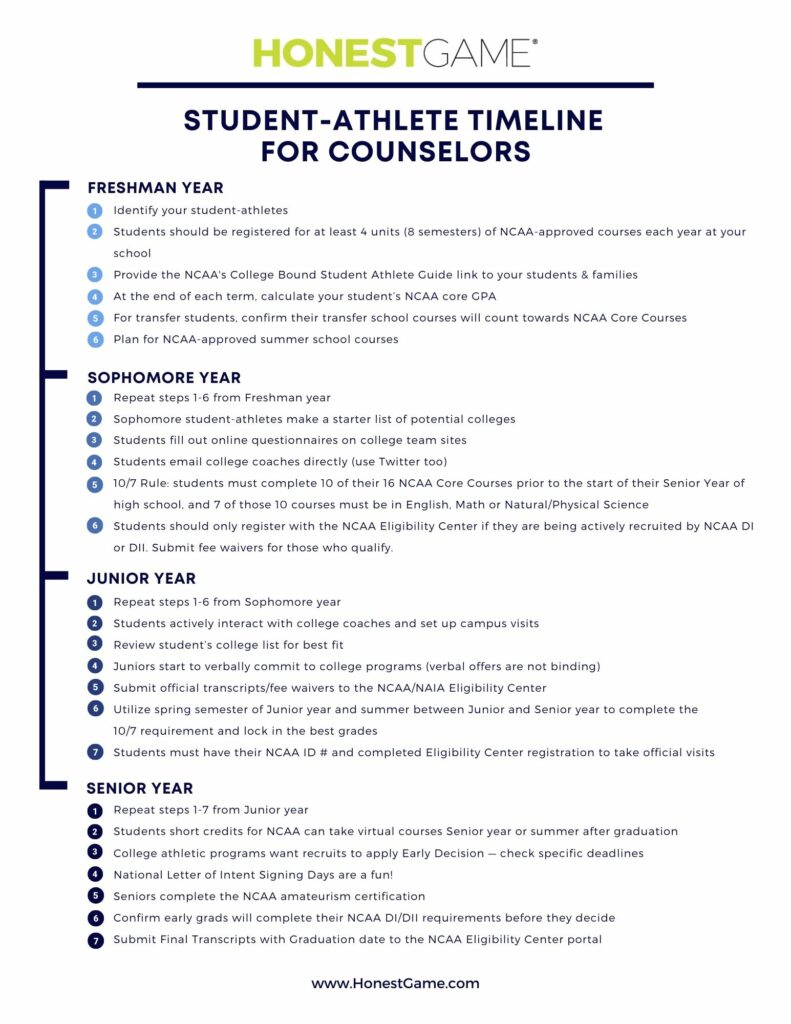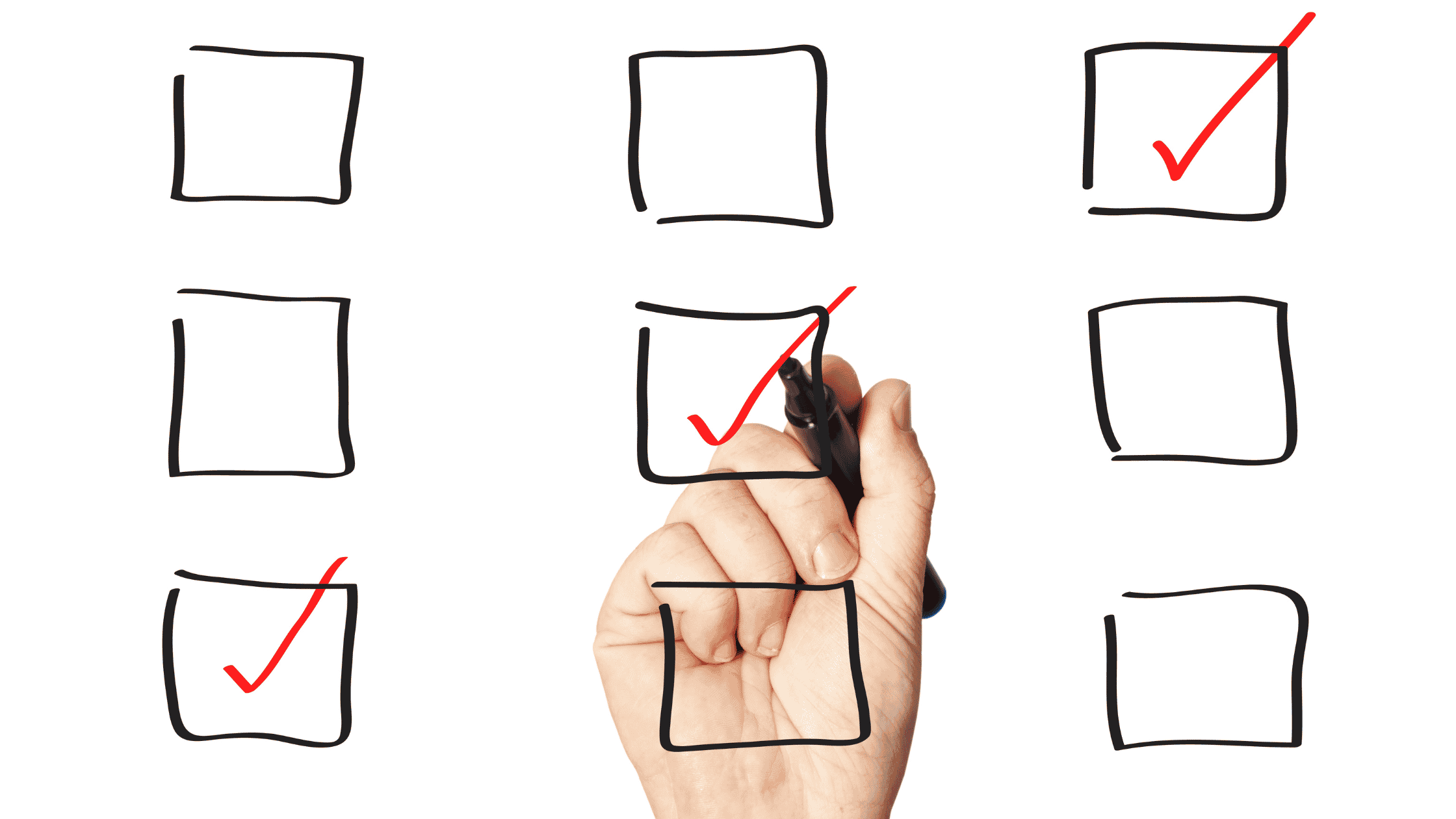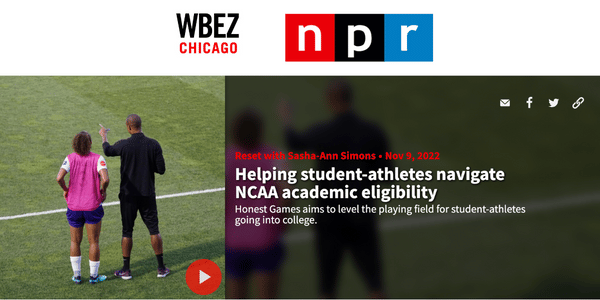Counselor Timeline for the College-Bound Student-Athlete
Updated on Nov 11, 2024

Many student-athletes dream of continuing to play their sport in college, but helping them navigate the complex academic eligibility rules and nuances of recruiting can be a daunting process.
In a survey by the American School Counselor Association, the recommended caseload for high school counselors is 250 students, however the national average was more than 415. With so many demands on counselors to juggle each student’s academic, athletic and social needs, it can be a challenge to address the specific needs of the college bound student-athlete.
When it comes to providing additional advice and support to your student-athlete, whether they hope to gain college admission and scholarships based on their athletic talent or just want to play on a college team, Honest Game has pulled together a year-by-year guide for counselors.
By starting in ninth grade, the four-year plan below will help your students avoid common errors and successfully navigate the post-secondary sports pathway for your students.
| Download our free printable checklist!
|
Freshman Year
While many student-athletes may not have their college goals mapped out quite yet, starting this process freshman year is key! This is also a good time to review Honest Game’s Resources for School Counselors and Academic Eligibility 101.
Beth Arey, a former college athlete and now College & Career Coordinator at Evanston Township High School, knows firsthand how important it is to start early. She believes it’s worth making sure all students are on the right track to meet academic eligibility requirements from a young age, since participation in sports can vary from year to year, semester to semester.
“I was fortunate enough to have been recruited my freshman year. If I had shared that with my counselor at the time, my academic trajectory may have been a little bit different,” said Arey.
“In the end I think I just kind of got lucky. But I know there are many student-athletes who don’t have the experience to be on a varsity team until junior or senior year. By then, it can often be too late depending on what courses are available or the grades that they’ve earned.”
During freshman year, ask your student-athletes if they are considering playing sports at the collegiate level. Even if it’s not set in stone, it is important to consider the opportunities available later on.
For those who answer yes and are already committed to the steps for college-bound student-athletes, set them up for success by following these steps:
- Confirm Course Registration: Confirm your college-bound student-athletes are registered for at least 4 units (8 semesters) of NCAA-approved Core Courses each year at your school.
- Confirm and update your school’s NCAA School Portal is up-to-date with proper Core Course names, grade scale, and weighing on your Honors and AP courses.
- NCAA-approved subject areas that should be taken freshman year include English and Math. Social Science, Natural Science and/or World Language usually fulfill the other requirements.
- If your student is registered for fewer than 4 NCAA-approved Core Courses freshman year, they should plan for summer school to ensure they don’t fall behind.
- Share the NCAA Guide: Provide the College-Bound Student-Athlete Guide to your students and families. This comprehensive resource is full of helpful information that gives families detailed guidance on a wide range of issues.
- Know their NCAA Core GPA: At the end of each term, calculate your student-athlete’s NCAA Core GPA. If their NCAA Core GPA is below a 2.4, meet with them to talk through goal-setting or review your Honest Game dashboard for students in the red. Learn more about Honest Game’s CARE® (College Athletic Report on Eligibility) and how it can help leverage a student’s passion for sports to motivate learning with short-term goals.
- Review Transfers: For any transfer students, confirm their transfer school courses will count towards their NCAA core credit requirements. This can be done by using the previous school transcript and CEEB code to cross-check the course names.
- If your student requests to “re-class”, consider reading Honest Game’s reclassification blog to understand what is necessary to ensure student-athletes are maintaining their NCAA eligibility status upon graduation.
- Plan for Summer School if Necessary: Help your student-athletes make a plan to take NCAA-approved summer school courses if they experience any of these issues:
- Have an NCAA Core GPA below a 2.3
- Did not complete 4 units (8 semesters) of NCAA-approved core courses freshman year
- If your school does not offer NCAA-approved courses in the summer, students may take NCAA-approved courses with a virtual school. The virtual courses need not count toward your school’s graduation credits, however, the virtual school transcript must be submitted separately to the NCAA Eligibility Center.
Sophomore Year
- Repeat steps 1 – 6 from freshman year.
- Make a List: During Sophomore year, student-athletes should start making a starter list of potential colleges. It’s best to divide this into 2 lists: begin with a list of schools where there is a possibility of competing at the varsity level, and another list of schools where athletics are unlikely but the college or school still appeals to the student. If your students are unsure where to start, start with these considerations:
- Have the student prioritize the ideal college location, size, diversity, and field of study
- Students should have approximately 10 safety, 10 best fit, and 10 reach schools
- Students should then research each team’s roster to examine things like athlete height and weight at their position, high school bios of team members, and recruiting videos on YouTube. This will help them realistically compare skills and abilities.
- Submit Questionnaires: Once the starter list of schools has been created, have the student fill out online questionnaires on college team sites. Under the right circumstances, students may use Twitter to follow college coaches and direct message them.
- Contact College Coaches: After submitting online questionnaires, students should email college coaches directly. This can be a nerve-wracking task for young students and providing guidance on how to put their best foot forward can help. Honest Game’s blog on “How to Talk with College Coaches” offers insight on how to show your best self when talking with prospective schools and their coaching staff. In each outreach, students should be sure to include:
- A 3 – 4 minute highlight reel, such as a YouTube link or Hudl account, of competition and/or practice.
- A 1 page PDF profile or resume including athletic and academic honors.
- An unofficial high school transcript and/or Honest Game report.
- A short introduction that addresses: why the student is interested in the college, and where and when the coach can see the student play live.
While there are no limitations to watching students on NCAA DIII, NAIA, or junior colleges this year, the NCAA generally prohibits live scouting until after sophomore year for DI and DII schools. See the NCAA’s sport-specific recruiting calendar for the 2021 – 2022 school year.
Navigating the various levels of competitive college athletics can be confusing for students, Honest Game has broken down the differences between NCAA and NAIA college divisions.
- When to Register with NCAA: Students should register with the NCAA Eligibility Center at the beginning of the sophomore year if they are considering playing sports at the DI or DII levels. Fee waivers may be available.
- You can only submit the transcript and fee waiver for those who have fully completed their NCAA registration. Many times students don’t complete the final part, which includes the options for payment or request for a waiver.
- You can only submit the transcript and fee waiver for those who have fully completed their NCAA registration. Many times students don’t complete the final part, which includes the options for payment or request for a waiver.
Junior Year
- Repeat steps 1 – 5 from sophomore year.
- Campus Visits: Students should be actively interacting with college coaches and setting up campus visits. If they are not hearing back, they may be aiming at the wrong division and will need to adjust their list of potential colleges.
- Find the Best Academic Fit: Leveraging academics along with athletics can create more opportunities for your students. Review the student’s college list for academics and encourage them to find the best fit. Sometimes this means they might consider a different school than the one they had their sights set on for athletics. Learn more about how to leverage academics when communicating with college coaches.
- Verbal Commitments: Juniors will start to verbally commit to college programs. Remind them that verbal offers can be taken away and are not binding. It’s important that they keep up their grades, athletic performance and behavior.
- Submit Transcripts: Be sure to submit student official transcripts/fee waivers to the NCAA Eligibility Center.
Senior Year
- Repeat steps 1 – 5 from junior year.
- Apply Early Decision: Many college athletic programs require their recruits to apply for “Early Decision.” Helping student-athletes determine and meet the deadlines for early decision at their top choice institution will help them stay on track.
- Signing Days: Signing Days are a fun way to celebrate students’ athletic grant-in-aid offers. Many students who are not receiving scholarships will also participate in the Signing Day.
- NCAA Amateurism Requirements: Seniors must complete the NCAA amateurism certification questions. According to the NCAA, “prospective student-athletes enrolling for the first time at Division I or II schools must receive a final amateurism certification before being eligible to compete. This includes transfers from junior colleges, NAIA, international or Division III schools”. To receive an amateurism certification, prospective student-athletes should:
- Register with the NCAA Eligibility Center.
- Completely and accurately fill out the “Sports Participation” section during registration.
- Request final amateurism certification (PDF) promptly.
- Monitor tasks assigned to their account.
- Early Graduation: You may have students who request to graduate early. Confirm they will complete their NCAA DI or DII requirements before they decide.
- Final Steps: Submit the student’s final transcripts with graduation date to the NCAA Eligibility Center portal.
If the steps outlined above seem like a complex maze of rules and regulations to navigate for each student-athlete, they are! But by leveraging the right resources and talking to student-athletes early about their college athletic aspirations, counselors can help them avoid errors and guide them on a path to more opportunities, and, ultimately, the right college fit.
To learn more about how Honest Game automates much of this complex process and protects high schools and students from NCAA eligibility errors, contact us anytime.

Having served on the NCAA Eligibility Center High School Advisory Board and as the College Bound Student-athlete Advisor at Evanston Township High School, Joyce has advised more than 2,000 high school student-athletes on academic eligibility and recruiting.




